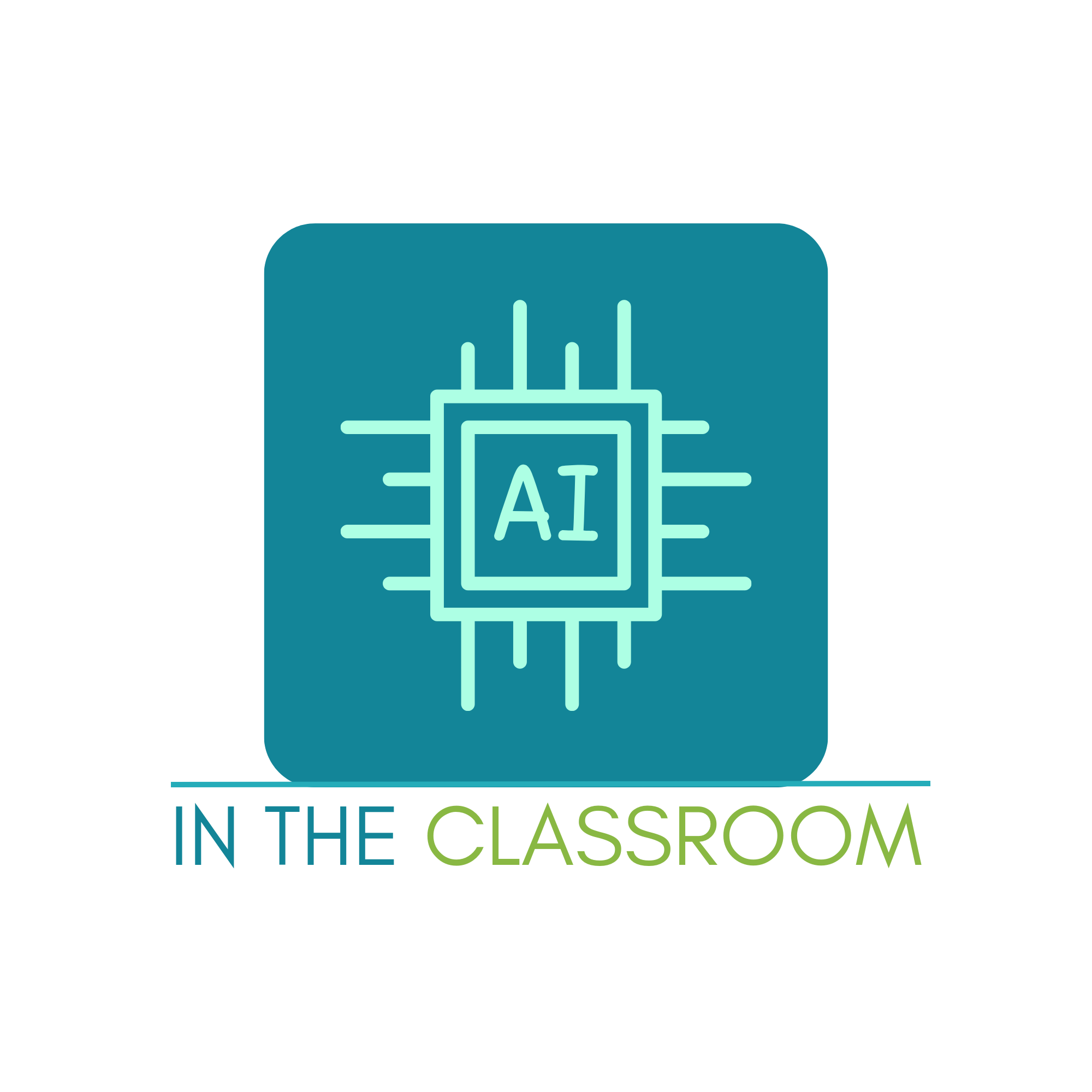AI in the Classroom Conference
Thursday 3 and Friday 4 September 2026
Melbourne Convention & Exhibition Centre
What role will Artificial Intelligence (AI) play in Australian classrooms? As technology rapidly evolves, so too does education. AI is no longer a distant concept— it’s already reshaping how we teach, learn, and lead in schools. The AI in the Classroom stream at the 2026 National Education Summit explores how educators can harness AI to enhance learning outcomes, streamline teaching practices, and prepare students for a future shaped by intelligent technologies.
Focus Areas:
1. AI Literacy & Ethics
Building foundational understanding of AI for students and educators
Teaching responsible use of AI tools and addressing bias, misinformation, and digital citizenship
Exploring ethical frameworks and policy guidance, including the Australian Framework for Generative AI in Schools
2. AI-Enhanced Teaching & Learning
Using generative AI for lesson planning, differentiation, and feedback
Intelligent tutoring systems that adapt to student needs in real time
AI tools supporting inclusive education, accessibility, and multilingual classrooms
3. Curriculum Integration & Assessment
Embedding AI into the curriculum across subjects and year levels
AI-assisted formative and summative assessment
Case studies of whole-school or system-wide AI implementation
4. Professional Learning & Teacher Support
Equipping educators with AI fluency and practical classroom strategies
Designing professional development that supports ethical and effective AI use
Addressing teacher workload through AI-powered administration and planning tools
5. Creativity, Collaboration & Future Skills
Encouraging student agency and experimentation with AI
Using AI to foster creativity, critical thinking, and collaboration
Preparing students for AI-integrated careers and lifelong learning
Choose from one day or two day tickets. Tickets include Arrival tea/coffee, Morning tea & Buffet lunch, Certificate of Attendance (mapped to APST), attendance at Summit Social, access to The Education Show (the offical Expo of the Summit), Knowledge Centre & Classroom of the Future
Thursday 3 September 2026
*Program subject to change
9:00am
Welcome and Housekeeping
9:10 – 9:40am
Dan Bowen, K12 CTO, Microsoft
Curiosity in the age of AI
In a world increasingly shaped by artificial intelligence, curiosity remains our most powerful human trait. This keynote explores how curiosity fuels innovation, drives ethical decision-making, and empowers lifelong learning in an AI-driven era.
Dan will unpack the evolving relationship between human curiosity and machine intelligence—highlighting how educators, leaders, and technologists can harness AI not just as a tool, but as a catalyst for deeper inquiry, creativity, and transformation. From classrooms to boardrooms, this session will challenge conventional thinking, showcase real-world examples, and offer actionable insights on how to cultivate curiosity in systems, pedagogy, and leadership.
Whether you're navigating AI in education, policy, or enterprise, this keynote will inspire you to lead with questions, embrace uncertainty, and design futures where curiosity and technology co-evolve for the greater good.
9:40 – 10:10am
Victoria Spicer-Stuart, Head of Teaching & Learning - Digital Practice and Adoption Lead, Beaconhills College
Being Human in the World of GenAi
This workshop will explore some of the ethical considerations of AI use, with a focus on the human impacts. The workshop will explore elements such as bias, intellectual property, labour displacement and the hidden human workforce behind Generative AI. The interactive session encourages educators to reflect on which teaching tasks can be delegated to AI and which should remain human-led, with the aim of prompting critical discussion and personal reflection on AI’s role in education and society as a whole during the workshop.
10:10 – 10:40am
Session TBC
10:40 – 11:00am
Q&A Panel with Dan Bowen & Victoria Spicer-Stuart to answer questions
11:00 – 11:30am
Morning Tea
11:30 – 12:00pm
Matthew Esterman, Founder, The Next Word
Cyborgs in schools - where to next?
Classrooms are no longer just human spaces. From lesson planning to student support, AI is slipping into the daily rhythms of teaching and learning. But are schools ready for this “cyborg moment,” where human expertise and machine intelligence fuse? This session explores what’s possible, what’s risky, and what’s next. Expect provocations, practical examples, and a peek into the near-future of education where teachers, students, and AI learn to co-evolve.
12:00 – 12:40pm
Brodie McGee, Digital Transformation Leader, Salesian College
Personalised Learning at Scale: Building Custom AI Chatbots for Every Student
At Salesian College Sunbury, we wanted to go beyond simply using off-the-shelf AI tools in the classroom. Our goal was to give every student a personalised tutor for each subject they study, grounded entirely in their actual coursework.
This session will demonstrate how our Digital Learning & Innovation team built an internal platform that lets teachers upload their subject content, assessment instructions, and resources, then automatically generates a dedicated AI chatbot for each student in each class. These chatbots can answer questions, explain content in different ways, and guide students step-by-step through their tasks — all while staying aligned with teacher expectations. Built using AI APIs within our College's Generative AI Framework, this system has transformed student engagement and reduced the time teachers spend on repetitive clarification. Attendees will see how we designed the workflows, guardrails, and safety systems that make this possible within a school context.
Participants will leave with a clear blueprint for creating their own custom learning support tools using generative AI.
12:40 – 1:00pm
Q&A Panel with Matt Esterman & Brodie McGee to answer questions
1:00 – 2:00pm
Lunch
2:00 – 2:30pm
Travis Burroughs, Director, Yarra Ranges Tech School
AI in Action: Empowering the Next Generation of Innovators
Is AI a threat to education or its greatest new tool? Join the Yarra Ranges Tech School for a look at how we are harnessing the power of Artificial Intelligence to foster student agency and supercharge STEM learning. This presentation moves beyond fear and explores how to thoughtfully integrate AI into the classroom to help students and teachers thrive.
We will explore our hands-on programs that introduce students to the fundamentals of AI through engaging activities in programming, robotics, design, and home automation. Discover how we provide clear instructions and expectations that empower students to use AI platforms as a powerful tool to accelerate their own learning and creativity. In this session, we will dive into practical examples, including:
A case study on how we developed our home automation program and how students use AI to design and automate their own homes.
Strategies for using AI to drive student entrepreneurship and innovation.
An overview of how our teachers leverage AI to rapidly develop new learning experiences and enhance their own practice.
2:30 – 3:10pm
Julian Ridden, Head of AI, The Anglican Schools Corporation
Using AI to increase Human connection
There is a lot of discussion of AI removing humanity. I refuse to accept this narrative. At the Anglican Schools Corporation we have built tools for our teachers that enable more human connection, not less.
In this session Julian will discuss how AI can enable more human connection and show tools and processes they have developed that his increased student agency, strengthened authentic student voice and increase connections between educators.
3:10 – 3:30pm
Q&A Panel with Travis Burroughs & Julian Ridden to answer questions
3:30 – 3:45pm
Ask the Audience: Delegates share the one idea that they will work on next week
4.00 – 5.30pm
Summit Social - a networking event for exhibitors, speakers and delegates.
Friday 4 September 2026
*Program subject to change
9:10 – 9:40am
James Jenkins, Head of AI and Digital Transformation, Canterbury College
Using AI to create digital interactives for your classroom
This workshop shows teachers how to harness AI tools to create custom HTML-based interactive activities that address their unique classroom requirements. Using hands-on examples, participants will discover an accessible process requiring zero programming knowledge - AI manages the HTML coding while educators concentrate on learning design. Discover how this method facilitates developing curriculum-specific, device-responsive materials that are simple to adapt and distribute, enabling teachers to construct precisely what benefits their learners most.
9:40 – 10:10am
Miriam Tanti, Deputy Dean, Professor in Education, La Trobe University
The meaningful integration of GenAI in teaching and learning
Generative AI is transforming not just what students learn, but how the brain engages with knowledge itself. In this session, we’ll explore the Science of Successful Learning through the lens of GenAI—examining how tools like ChatGPT can both amplify and disrupt human cognition.
Drawing on the simple model of memory, cognitive load theory, schema building, and cognitive offloading, we’ll consider how GenAI alters attention, working memory, and long-term understanding. Is AI helping students think more deeply—or think less? How can teachers ensure that cognitive effort remains productive, not outsourced?
Through practical, classroom-based examples, participants will learn to design lessons and tasks that use GenAI intentionally reducing cognitive load where appropriate, strengthening schema formation, and enhancing critical and creative thinking. You’ll leave with a research-informed toolkit of pedagogical strategies to lead AI-integrated learning that keeps human intelligence at the centre.
10:10 – 10:40am
Elijah Bajao, Teacher, Monash College
Interactive Notebooks for Future-Ready Classrooms: AI, Creativity, and Student Agency
Digital interactive notebooks reimagine classroom learning by blending creativity, collaboration, and AI-enhanced design. This session highlights how tools such as Google Slides, Canva, and generative AI can be used to create scaffolded, engaging, and highly adaptable learning experiences.
Participants will explore classroom-tested strategies that foster student agency, experimentation, and critical thinking, while also building transferable digital and creative skills for AI-integrated futures. Through collaborative discussion and demonstration, the session showcases how interactive notebooks can promote inclusivity and innovation in diverse learning contexts.
Attendees will leave with a toolkit of resources and design models to help them confidently implement AI-driven notebooks in their own classrooms and empower students to thrive in a future shaped by intelligent technologies.
10:40 – 11:00am
Q&A Panel with James Jenkins, Miriam Tanti & Elijah Bajao to answer questions
11:00 – 11:30am
Morning Tea
11:30 – 12:00pm
Maria Mertzanakis, Deputy Head of Senior School- Teaching and Learning, Oran Park Anglican College
Smarter, Not Harder: Reducing Teacher Workload While Elevating Pedagogy
This session explores how schools can redesign assessment to embrace AI’s potential while safeguarding academic integrity. Participants will examine practical strategies such as authentic, real-world tasks, oral defences, process-based assessment, and adaptive feedback.
The focus is on ensuring assessment remains rigorous, fair, and future-focused; measuring not just what students know, but how they think, create, and apply their learning in an AI-rich world.
12:00 – 12:40pm
Dr Roy Rozario, Research Scholar (Deakin Uni), Editor (Warwick Uni)
A framework for integrating evolving technologies using multiple pedagogies in classroom context.
In an evolving world of multi-modal technologies and artificial intelligence teachers need a framework that embraces expansive learning to successfully integrate digital learning. Expansive learning framework has evolved over three generations (over 100 years) and provides several models on how to unpack 21st century technologies to be integrated into classroom practice to attain lesson goals. The session will unpack how a case study of best teacher practices in digital technologies in Melbourne schools adopted multiple pedagogies, such as, ubiquitous, mobile, collaborative, differentiated, context relevant and expansive learning to enable deep learning using these models. Participants will be able to apply these models in their own context to support curriculum and lesson planning using evolving technologies to enable implementation of multiple pedagogies, and opportunities for collaborative learning and professional development.
12:40 – 1:00pm
Q&A Panel with Maria Mertzanakis & Dr Roy Rozario to answer questions
1:00 – 2:00pm
Lunch
2:00 – 2:30pm
Helen Velikans, Learning Resource Support Librarian, Catholic College Wodonga
Creative Practices and AI for Teaching and Learning
Explore how creative storytelling and ethical AI integration can empower students to thrive—emotionally, socially, and intellectually—in today’s classrooms. Discover hands-on strategies that foster wellbeing, inclusion, and digital integrity through imaginative, student-centred learning.
Experience how creative storytelling techniques—enhanced by ethical AI integration—can help students thrive emotionally, socially, and intellectually. This interactive workshop invites participants to engage in hands-on activities that promote wellbeing, inclusion, and technological integrity in the classroom.
2:30 – 3:10pm
Kistina Wu, Head of Faculty – Technology, Rangi Ruru Girls' School in Christchurch NZ
Teaching Fundamental AI literacy
The session will focus on what my team of technology teachers and I do to design and deliver a teaching unit on AI literacy for Year 10 students. It will include a comprehensive overview of the framework that underpins our teaching, a range of classroom activities, tools we use, pedagogical approaches we consider, and feedback from both students and teachers. It will be a complete teaching unit that others can take and implement directly in their classes.
3:10 – 3:30pm
Q&A Panel with Helen Velikans & Kistina Wu to answer questions
3:30 – 3:45pm
Ask the Audience: Delegates share the one idea that they will work on next week

















